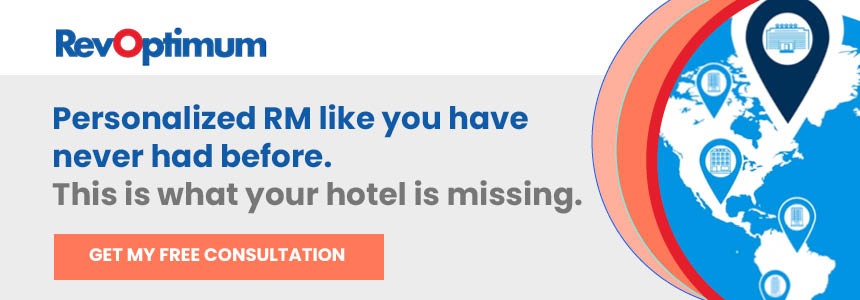In the ever-evolving landscape of the hospitality industry, independent hotels face a crucial decision: Should they rely more heavily on Online Travel Agencies (OTAs) for bookings or focus on driving direct bookings through their own channels? Both OTAs and direct bookings have their advantages and drawbacks, and finding the right balance between these two distribution channels is essential for maximizing revenue. In this article, we’ll take a deep dive into the pros and cons of OTAs versus direct bookings, along with actionable tips on how hotels can optimize both channels for sustainable growth and reduce dependency on third-party platforms.
The Role of OTAs in Hotel Revenue Management
OTAs like Booking.com, Expedia, and Airbnb have revolutionized the way travelers book accommodations. They offer unparalleled exposure for hotels by connecting them to a global audience. But with increased visibility comes the cost of commission fees and a level of dependency that can erode profitability over time.
Pros of OTAs:
- Increased Visibility and Reach: OTAs allow hotels to reach millions of potential guests globally, giving them access to markets that would otherwise be difficult to penetrate.
- Marketing Power: OTAs invest heavily in digital marketing, paid search, and metasearch advertising, ensuring that hotels listed on their platforms rank high in search results.
- Established Trust and Credibility: Many travelers prefer using OTAs because of the seamless user experience, reviews, and secure payment systems they provide.
- Low Initial Risk: Hotels don’t need to invest in upfront marketing costs to be listed on an OTA platform; they only pay a commission once a booking is made.
Cons of OTAs:
- High Commission Fees: OTAs typically charge commissions ranging from 15-30%, cutting into your overall revenue and profit margins.
- Lack of Control Over Guest Data: When guests book through OTAs, hotels often have limited access to valuable customer data, making it difficult to build relationships or target them with personalized offers.
- Rate Parity Issues: OTAs often require rate parity, which means that hotels cannot offer lower rates on their direct booking channels without violating agreements.
- Over-Dependency: Over-reliance on OTAs can limit a hotel’s ability to drive direct bookings and reduce profit margins long-term.
Why Direct Bookings Matter
Direct bookings are the most profitable type of reservation for hotels. When guests book through a hotel’s website or over the phone, there are no commission fees, and hotels retain full control over the customer experience. Additionally, direct bookings allow hotels to foster brand loyalty and engage with guests more effectively.

Pros of Direct Bookings:
- Higher Profit Margins: Since there are no commission fees to pay, direct bookings generate higher profit margins, giving hotels greater flexibility in pricing.
- Ownership of Guest Data: Hotels retain valuable guest information that can be used for future marketing campaigns, loyalty programs, and personalized offers, driving long-term engagement.
- Brand Loyalty and Guest Experience: Direct bookings give hotels the opportunity to build relationships with their guests by offering perks like loyalty points, room upgrades, or personalized services that encourage repeat stays.
- Flexible Pricing and Packages: Hotels can offer exclusive discounts, package deals, or added value through direct channels that they may not be able to offer via OTAs.
Cons of Direct Bookings:
- Marketing Costs: Driving direct bookings requires investment in digital marketing, SEO, social media, and website optimization. This can be costly, particularly for smaller hotels.
- Limited Reach: While direct bookings are highly profitable, hotels often struggle to attract the same level of traffic and visibility as OTAs, particularly in competitive markets.
- Conversion Challenges: Convincing travelers to book directly can be a challenge, especially if they perceive OTAs as more convenient or trustworthy.
How to Balance OTAs and Direct Bookings for Optimal Revenue
To maximize revenue, hotels need to find the right balance between leveraging OTAs for exposure and driving direct bookings for profitability. Here are some strategies to help independent hotels optimize both channels effectively:
1. Enhance Your Direct Booking Channel
Investing in your hotel’s website and booking engine is crucial for converting traffic into bookings. Ensure your website is mobile-friendly, fast-loading, and optimized for search engines. A user-friendly booking process with clear pricing and compelling offers will encourage guests to book directly.
2. Offer Exclusive Benefits for Direct Bookers
Incentivize direct bookings by offering perks such as free breakfast, complimentary room upgrades, or discounts that aren’t available on OTAs. Position these benefits clearly on your website and marketing materials to make the value of booking directly evident.
3. Leverage Guest Data for Personalization
One of the key advantages of direct bookings is access to guest data. Use this information to personalize email marketing campaigns, offer tailored promotions, and build long-term relationships with your guests. Loyalty programs can be highly effective in driving repeat bookings.
4. Use OTAs Strategically for Specific Periods
While OTAs offer exposure, they should be used strategically. For instance, during low-demand periods, use OTAs to boost occupancy and fill rooms. During high-demand periods, focus on maximizing direct bookings to improve profitability. Also, consider using OTAs’ marketing tools, like Expedia’s Accelerator or Booking.com’s Visibility Booster, to target specific markets when needed.
5. Run Targeted Marketing Campaigns
Use targeted digital marketing campaigns to drive direct bookings. Invest in Google Ads, social media advertising, and metasearch optimization to capture guests at the consideration stage of the booking journey. Email marketing is another powerful tool—engage with past guests and encourage them to book directly with exclusive offers.
6. Implement a Rate Parity Strategy
To comply with OTA rate parity agreements while still incentivizing direct bookings, offer added value on your website. For example, provide free amenities, flexible cancellation policies, or bundled offers that are exclusive to direct bookers, without undercutting your OTA rates.
Conclusion
Balancing OTAs and direct bookings is essential for independent hotels looking to maximize revenue while maintaining control over their customer base. OTAs provide valuable exposure, but their high commissions and lack of control over guest data make them less profitable. On the other hand, direct bookings offer greater profit margins and long-term guest loyalty, but they require an investment in marketing and technology.
By strategically leveraging both channels, offering exclusive benefits for direct bookers, and using data-driven personalization, hotels can reduce dependency on OTAs and drive sustained revenue growth. Remember, the key is not to eliminate OTAs but to use them as a tool while prioritizing the growth of your direct booking channel.
Get the personalized revenue management service your hotel needs today.
RevOptimum enables revenue management transformation for the hotel industry and supports hoteliers through our expertise and innovative revenue increase structures and proprietary tools. Every day, we strive to deliver the highest revenue performance, client excellence, service quality, and integrity that bring the power of success to the hospitality industry.
We are ready to work with your hotel to build a revenue management plan that brings in more RevPAR closely. Contact us to learn how you can reach all of your hotel revenue goals quickly.








